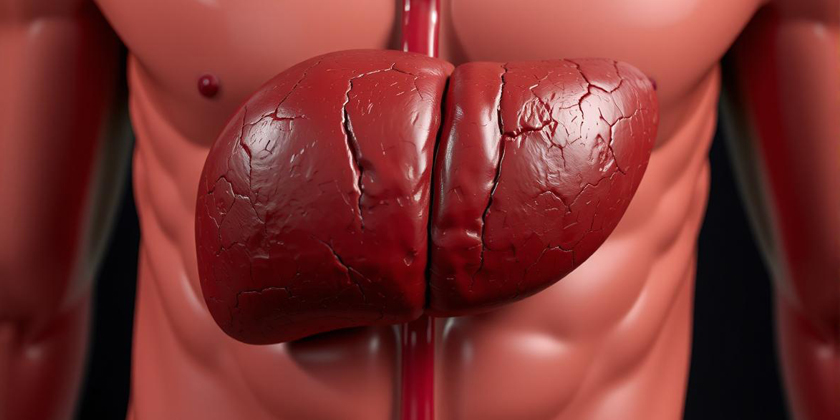The Complete Guide to Liver Health and Hepatic Conditions
Why Liver Health Matters
Liver health and hepatic conditions become critical to overall well-being because the liver carries out over 500 functions which include detoxification and metabolism. The World Health Organization calculates that liver diseases impact more than one billion people worldwide (WHO Liver Disease). My five-year collaboration with hepatologists as a health writer has demonstrated that proactive liver support can stop severe health problems such as liver disease or liver failure. The best approach to liver health involves early intervention to keep the liver functioning well.
Common Hepatic Conditions
1. Hepatitis
The medical condition hepatitis presents as liver inflammation triggered by viral infections (A, B, C) and alcohol consumption. According to CDC statistics around 2.4 million Americans have hepatitis C (CDC Hepatitis Stats).
Causes of Hepatitis:
- Viral Infections: Blood or bodily fluids transmit hepatitis B and C viruses.
- Alcohol Abuse: Chronic drinking leads to alcoholic hepatitis.
- Autoimmune Disorders: The immune system attacks liver cells.
- Medications: Toxic hepatitis can develop as a result of using certain medications including acetaminophen.
2. Fatty Liver Disease
Fatty liver manifests when fat deposits build up in liver cells which leads to reduced liver functionality. According to the National Institute of Diabetes and Digestive and Kidney Diseases, 25% of adults in the United States show signs of non-alcoholic fatty liver disease.
Causes of Fatty Liver:
- Obesity: Excess weight increases fat buildup.
- Diabetes: Insulin resistance promotes liver fat storage.
- Alcohol: Excessive drinking causes alcoholic fatty liver.
- Poor Diet: High sugar or fat intake contributes.
3. Cirrhosis
Cirrhosis represents the severe stage of liver scarring that develops because of chronic liver disease. According to the American Liver Foundation, approximately one out of every four hundred adults has ALF Cirrhosis.
Causes of Cirrhosis:
- Chronic Hepatitis: Long-term hepatitis B or C.
- Alcoholism: Years of heavy drinking.
- Metabolic Disorders: Conditions like hemochromatosis.
Symptoms of Hepatic Conditions
Effective liver health management depends on early detection of hepatic condition symptoms:
- Fatigue: Persistent tiredness or weakness.
- Jaundice: The accumulation of bilirubin leads to skin and eye discoloration.
- Abdominal Pain: Patients with hepatic conditions often experience swelling or discomfort in the upper right part of their abdomen.
- Dark Urine or Pale Stools: The appearance of dark urine or pale stools indicates impaired liver function according to Mayo Clinic Liver Disease findings.
Approaches to Maintaining Liver Health and Managing Hepatic Conditions
1. Lifestyle Changes for Liver Health
Support liver function with healthy habits:
- Balanced Diet: To maintain liver health eat foods that are high in fiber and contain vegetables and lean proteins while reducing intake of sugar and saturated fats (NIDDK).
- Limit Alcohol: Protect your liver by restricting alcohol consumption to avoid fatty liver disease and cirrhosis.
- Exercise Regularly: A healthy weight helps lower the chances of developing fatty liver disease.
- Avoid Toxins: Protect liver health by reducing chemical exposure and avoiding excessive acetaminophen use.
2. Medical Treatments for Hepatic Conditions
Consult a hepatologist for tailored care:
- Antiviral Medications: Hepatitis B and C require specific antiviral treatments which can completely cure hepatitis C (CDC).
- Medications for Fatty Liver: Manage underlying conditions like diabetes or cholesterol.
- Liver Transplant: A liver transplant becomes necessary for advanced cirrhosis patients who experience liver function failure according to the Mayo Clinic.
3. Preventive Measures
Prevent liver disease with proactive steps:
- Vaccinations: Get vaccinated for hepatitis A and B.
- Regular Screenings: Blood tests should be used to check liver enzymes regularly when someone is at risk.
- Safe Practices: According to WHO, people should not share needles and must practice protected sex to avoid hepatitis infections.
FAQs About Liver Health and Hepatic Conditions
What causes hepatic conditions? Hepatitis and cirrhosis develop as liver diseases from viral infections along with alcohol abuse and obesity or autoimmune disorders (Mayo Clinic).
How can I improve liver health? Enhance your liver health by eating balanced meals while cutting down on alcohol consumption and engaging in regular exercise then receive hepatitis vaccinations (NIDDK).
Can fatty liver be reversed? Non-alcoholic fatty liver often responds positively to weight loss and lifestyle modifications (ALF).
Under what circumstances should I consult with a healthcare professional about liver problems? The CDC advises seeking medical assistance if you experience jaundice or persistent fatigue and abdominal pain.
Conclusion: Prioritize Liver Health and Hepatic Conditions
The liver’s crucial functions in detoxification and metabolism make liver health an essential component of overall wellness. Managing liver health requires understanding the causes of liver disease and recognizing its symptoms while taking preventive actions to maintain liver function and handle hepatitis or cirrhosis. My collaboration with liver specialists demonstrates how early intervention combined with regular care can improve health outcomes. Act now to protect your liver today so you can enjoy a healthier future.



